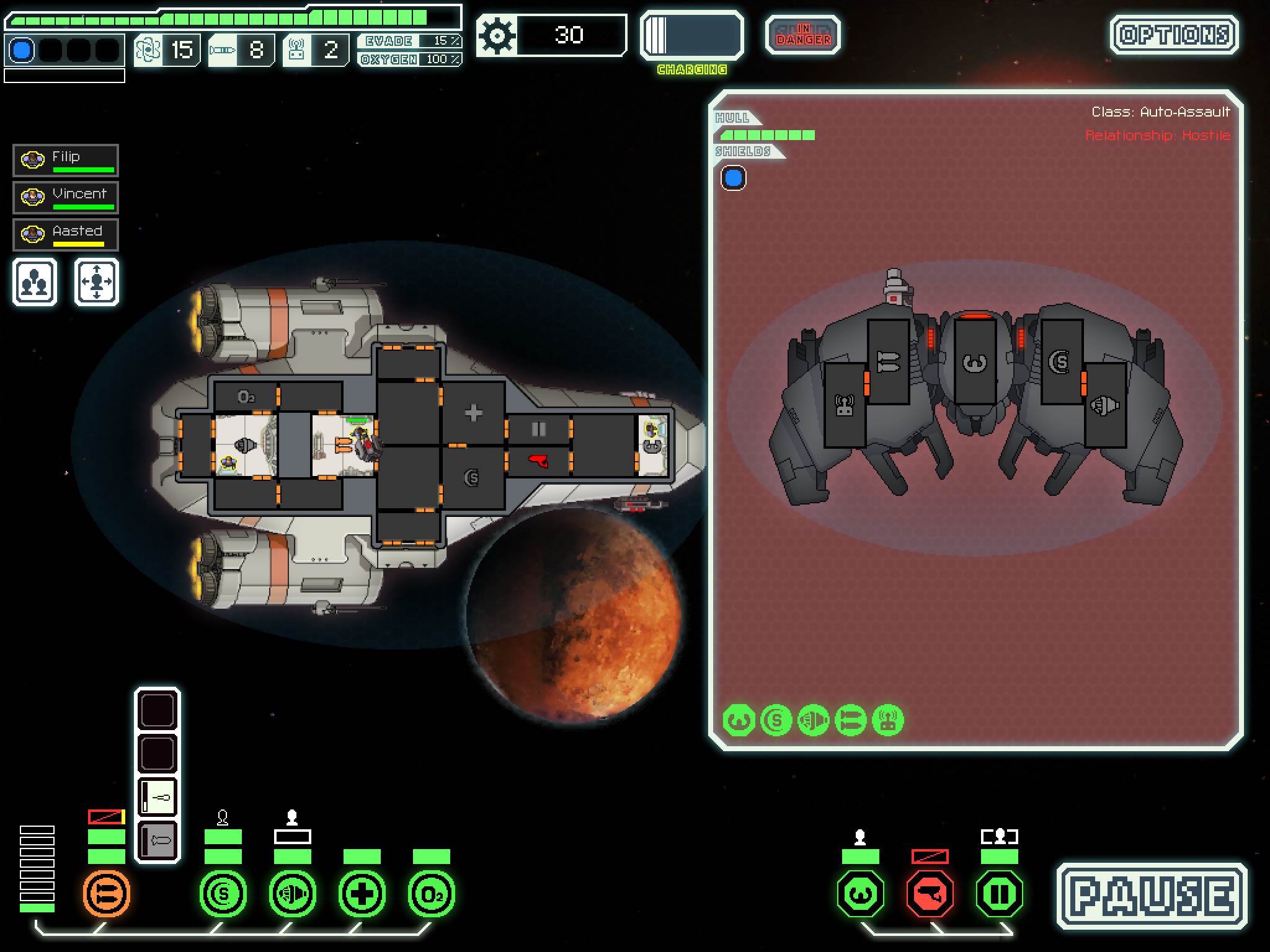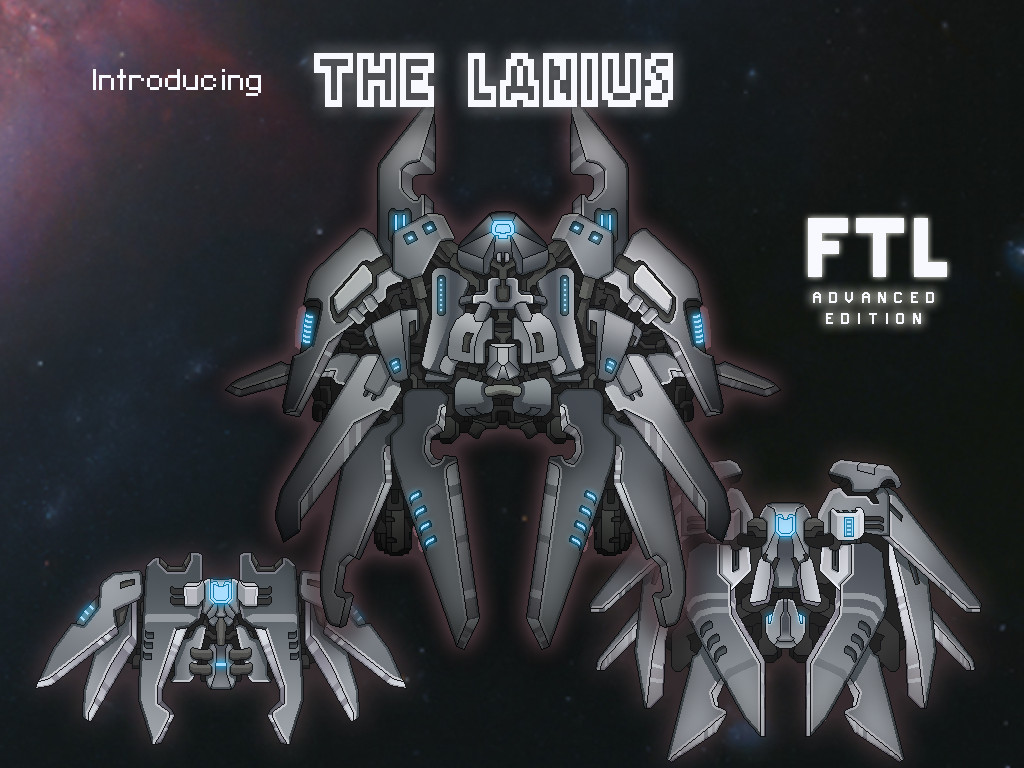Memory Editing on Mac. If you play Faster Than Light on Mac OS X, Bit Slicer is similar to Poke. Bit Slicer for Mac. Choose the 32-bit Integer type and specify that it is Unsigned. There are various ports of Cheat Engine to OS X, however. Memory Editing on Linux. The Linux equivalent of Poke is a command-line utility called scanmem. FTL: Faster Than Light is the vision of gamers and sci-fi enthusiasts fully realised, and is fast becoming my most recommended game of the year. FTL: Faster Than Light for Mac relates to Games.
|
| FTL: Faster Than Light October 23, 2012 | Justin Ancheta |
|
Click to enlargeShip Select |
Mac OS X: 10.6.8 | CPU: Intel 2 GHz | RAM: 1 GB RAM | HD Space: 175 MB | Graphics: 1280x720 minimum resolution, OpenGL 2.0 Support, and recommended dedicated graphics card with 128 MB of RAM

Writer's Note: I was able to play and finish the game on my Core Duo/64 MB GMA 950 MacBook with no problems at all

Arguably one of the greatest lessons that video games can teach us is the lesson of perseverance. That indefatigable personality trait which pushes us to grind one more dungeon, to get to one more level, and to get that one last gold coin, regardless of how many turns it takes on the endless, almost Buddhist cycle of death and rebirth for us to get there. If the surest sign of insanity really is the repetition of the same acts, in the hope of a different outcome, then video games are a special madness that is shared among all of us. One such special madness shared among a seemingly select few is fandom for the Captain's space opera. The fantasy of being in the Captain's chair, balancing the Needs of the Many versus the Needs of the Few. All hands to battle stations, shouts Captain Picard, as Jayne grins menacingly. Imperial-class Star Destroyers? That don't seem too fair. They only sent three of 'em... angle the deflector shields, Chewie, we're going in.
Ftl Faster Than Light Game
FTL: Faster Than Light, by two-man indie team Subset Games, almost seems like it was a game made for gloriously mad moments like these. With an SNES-era 16-bit aesthetic, and a plot and setting seemingly ripped straight out of an episode of Firefly or a Star Wars novel, FTL seems like it wants to pull out all of the stops, to tug on as many nostalgic heart strings as it can to suck us in. And boy, like the Cerberus Black Hole, it definitely sucks you in. FTL has the unique distinction of being one of the first (if not the first?) games of 2012 to publicly benefit from the newfound power of Kickstarter. Arguably, one could say that the Kickstarter campaign didn't really matter as much as some championing the crowd-sourcing model would lead us to believe; the game was already well underway, and almost largely complete when Subset launched their Kickstarter drive (hence accounting for the very low final target). In the end though, it doesn't really matter; it's because of Kickstarter that FTL has become one of the best regarded indie games of the year. Without that attention, FTL wouldn't have failed, but it surely wouldn't have become the massive success that its become for Subset.

Just like how Defender's Quest: Valley of the Forgotten (surely one of the best and most addictive indie Mac games I'd encountered in 2011-2012) radically recontextualized the notion of what a tower-defense game could (and should) be, FTL takes our notions of what a rogue-like game could be, and shoves it out the airlock in due fashion. Like in Defender's Quest, all of the traditional elements are there, front and center, if you strain your brain hard enough to make the connections; like the intrepid adventurer tossed into a dank dark dungeon, we have a ship cast into the inky black void of space. Like said dungeon, space in FTL is a vacuous ocean filled with all sorts of unknown possibilities, of loot to discover, and monsters to massacre – only that instead of hungrily collecting piles of gold, we are left desperately scrounging for scrap metal, fuel, and ammunition. Instead of shambling monstrosities out of an H.P. Lovecraft novel, we have pirates, disease-addled ship captains helming battleships bristling with weaponry, and Rebel scout fighters who may even be a little mournful that, either way, someone is going to add to the body count of this apparently pointless and endless galactic war. It's easy to see then, that FTL brings a unique almost defiant style and aesthetic to the Rogue-like genre. If games like Hack Slash Loot and Cardinal Quest tried to streamline and probe their gameplay down to the essence of what makes a Rogue-like a Rogue-like, FTL flamboyantly dresses it up in the trappings of cherished sci-fi garb, with all of the glee of an overenthusiastic cosplayer.
Ftl Faster Than Light Wiki
Where FTL really shines though is how it goes beyond simply being a sci-fi rogue-like. Instead of an adventurer, 'you' are a starship populated by a crew. The ship's systems are broken down into the categories you'd expect, with piloting, engines, shields, weapons, life-support, and sickbay as the defaults. These systems cost energy, which increases as you upgrade your ship's systems further. This costs scrap metal, the game's principal in-game currency, but even if you were able to accumulate the scrap to do so, you will never have enough upgradeable capacity to max out all of your systems, and keep them fully powered all at the same time. And on top of that, your desire or ability to upgrade your weaponry – including guns/missiles and robotic drones – is contingent upon whether or not you'll actually be able to find any upgrades to use and equip in the first place. On some playthroughs, my ship was overloaded with ion cannons, offensive drones for boarding actions, and pulse lasers – on others, all I had on-hand to face the final boss were my default weapons and a prayer. Oh yes, and since you can target the systems on opposing ships to knock out, they can do the same to you, and it's no surprise that enemy ships will often try to go for your O2 systems first. And speaking of weapons, the weapon progression also balances a delicate line between firing rate, energy consumption and stopping power. That sweet missile launcher may do four whole points of hull damage, regardless of shield strength – but such impressive potential is useless if half your ship is destroyed by the time you'll get a chance to fire it, or if you end up having to turn off critical systems to power it up.
Ftl Faster Than Light Mod
| Pages: | 1 | 2 | Gallery |
Ftl Faster Than Light Browser
The last enemy cruiser powers past the wreckage of its three comrades. It opens fire, blasting away at your vessel with its forwards guns. The blazing inferno in engineering has claimed the lives of half your crew. Those few left alive fight to desperately contain the threat. You try not to think of those men as you order power diverted from life support to the main guns. Many will die, but enough will remain to continue your mission...Games like FTL Faster Than Light live on these moments. They are unafraid to show you just how harsh their world is and will not pull their punches. They are equal parts survival, RPG decision making and turn based tactics experience. It's just you, a ship, and the challenge of earning enough money to keep it flying. The beauty of games like FTL Faster Than Light is that no single story is the same, as each will branch out and alter. Each is a cluster various side-quests and odd situations, balanced to have a risk factor involved. Each is a link in a chain of hundreds of minor engagements, and every one can alter your path in some way. Even without a full story, a costly battle will define how you approach future challenges.Other releases cite complex storytelling as a driving point, but games like FTL: Faster Than Light thrive on simple ideas leaving a massive impact. This is as true of the quests as it is the core mechanics. The act of piloting a ship might seem like it would require a complex series of menus, but it's more a case of keeping track of key systems. Well, that and the risks of losing them. If you lose O2, your crew will choke to death. If your engines explode you can no longer dodge incoming fire. If a gun explodes then trying to fire it is a bad idea. It offers a simple start, allowing you to focus upon rapid decision making. Something you will need given the sheer volume of uphill battles you're certain to run into. You will rarely find that a battle is ever weighted in your favour. Without a lot of luck and plenty of skill, you are going to be constantly outgunned at every turn. Yet, because of this simplicity, the gameplay proves to be harsh but never unfair to the point of cheating.Perhaps the greatest appeal of games like FTL Faster Than Light lies in their sheer replay value. You can beat them a thousand times over, die a million more, but you will find new stories awaiting you. In some quests you will keep failing by the narrowest of margins. In others you will keep dying to that one enemy, driving you to find a way to kill him. This keeps pulling you back in over and over again, just to get a bit extra out of the game.If you seek a game which challenges you. If you want a game that doesn't pull its punches, then take a look at those listed below.

Comments are closed.